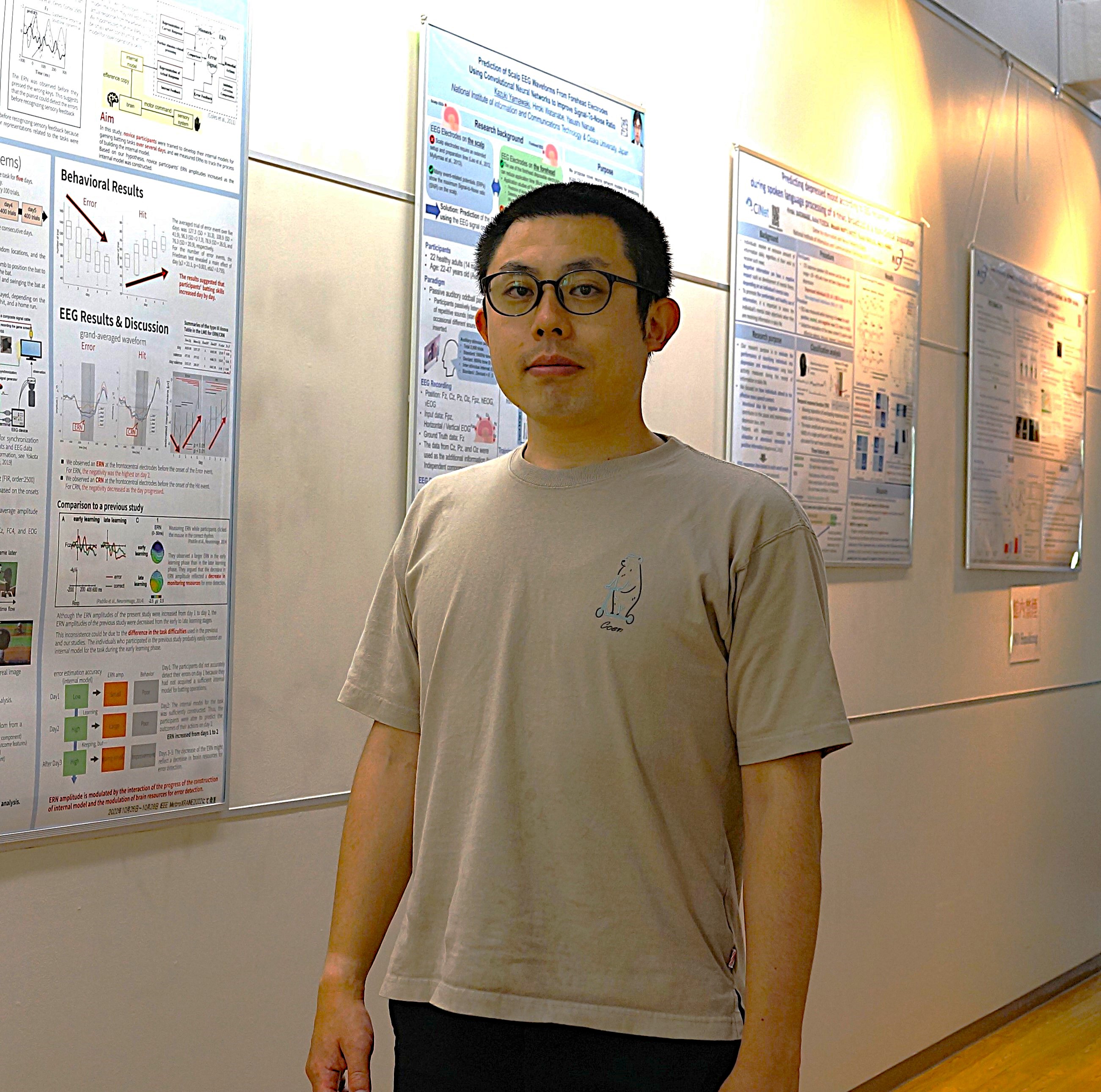Member Introduction
Motoyuki Sanada
Degree
Ph.D.
Research theme
I have conducted foundational research on various aspects of the mind, including attention and emotion, employing EEG measurements. Building on this groundwork, my current focus lies in understanding the workings of the mind within real-world settings and exploring the practical implications of these findings for society.
Education
2009 B.A. Faculty of Letters, The University of Tokyo
2011 M.A. Graduate School of Arts and Sciences, The University of Tokyo
2014 Ph.D. Graduate School of Arts and Sciences, The University of Tokyo
Employment
2011-2014 Research Fellow (DC1), Japan Society for the Promotion of Science
2014-2016 Project Researcher, Graduate School of Arts and Sciences, The University of Tokyo
2015-2016 Research Assistant, The University of Tokyo Hospital
2016-2019 Postdoctoral Fellow, Center for Applied Psychological Science (CAPS), Kwansei Gakuin University
2019-2022 Research Fellow (PD), Japan Society for the Promotion of Science
2021-2022 Guest Researcher, Faculty of Social and Behavioral Sciences, Leiden University
2022-2023 Contract Researcher/Researcher in the School of humanities, Kwansei Gakuin University
2024- Researcher, Brain Function Analysis and Imaging Laboratory, Center for Information and Neural Networks (Cinet), Advanced ICT Research Institute, National Institute of Information and Communications Technology (NICT)

Publications
Research papers
- Sanada, M., Naruse, Y. EEG synchronisation reveals the impact of group identity and membership duration on social cognitive bias. Scientific Reports 15, 23719(2025).

- Sanada, M., & Katayama, J. Unpleasant emotion inhibits attentional focus toward a peripheral target in a visual search: an ERP study. Experimental Brain Research, 242(6), 1399-1409 (2024)

- Sanada, M., Kumagai, A., Katayama, J. The resolution stage, not the incongruity detection stage, is related to the subjective feeling of humor: An ERP study using Japanese nazokake puns. Brain Res. 1778, 147780 (2022).

- Sanada, M., Kuwamoto, T., Katayama, J. Deviant consonance and dissonance capture attention differently only when task demand is high: An ERP study with three-stimulus oddball paradigm. Int. J. Psychophysiol. 166, 1-8 (2021).

- Okada, N, Ando, S, Sanada, M, Hirata‐Mogi, S, Iijima, Y, Sugiyama, H,...Kasai, K. Population‐neuroscience study of the Tokyo TEEN Cohort (pn‐TTC): Cohort longitudinal study to explore the neurobiological substrates of adolescent psychological and behavioral development. Psychiatry Clin. Neurosci. 73 (2019)

- Sanada, M., Kobayashi, M., Otake, K., Katayama, J. Time-series fluctuation of physiological state during emotion induction: A frontal alpha asymmetry and heart rate study. Jpn. J. Res. Emot. 26(3), 62-70 (2019)

- Sanada, M., Ikeda, K., Hasegawa, T. Shape and spatial working memory capacities are mostly independent. Front. Psychol. 6, 1-13 (2015)

- Sanada, M., Ikeda, K., Kimura, K., Hasegawa, T. Motivation enhances visual working memory capacity through the modulation of central cognitive processes. Psychophysiology 50(9), 864-871 (2013)



